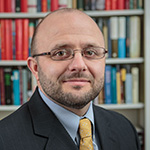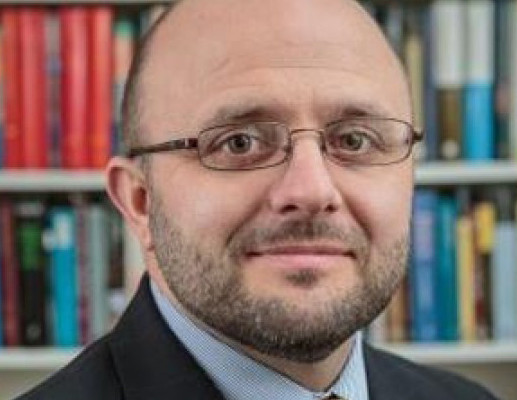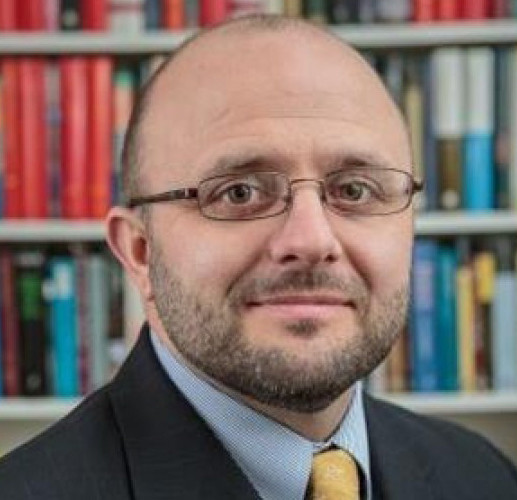 By Jason Coker
By Jason Coker
In 2008, our local Presbyterian pastor and I co-lead our clergy association to create an organization in our town that would host a refugee family. Our local synagogue, some of our Muslim citizens, and nearly all our churches in town came together and participated. We had an organization of about a hundred people — almost all lay people — who were divided into committees on education, health, food, housing, transportation, home furnishings, etc. If it had to do with life, we had a committee for it.
This coalition of Jews, Muslims, and Christians worked with Integrated Refuge and Immigrant Services (IRIS) in New Haven, Conn., to prepare for the family. We had no idea from what country in the world they would come, but after months of preparations, we really didn’t care. At that point, we were ready and paying rent on an empty house! Finally, IRIS told us that we would be receiving a family of four from Iraq. They had been in refugee camps in Jordan and Syria for a couple of years and were finally able to secure the official status of “refugee.” With little notice, we took two vehicles to John F. Kennedy Airport in New York City to welcome this family to the United States.
There were several of us — some from the synagogue, some from the churches, and some from the Muslim community. We had a sign with their family name, so when they finally made it to the baggage claim area, they were able to find us. The father, who was the exact same age as me, came up to me and kissed me on the cheek, then the other cheek, then back to the original cheek. “Shukraan, sdiqty!” “Thank you, my friend!” We met the family. The mother, wearing her hijab, meekly introduced herself. The little girl was shy like her mother, but the little boy — who was the same age as my son — was bouncing off the walls. After fleeing from their country for fear of being killed, after two years of moving from one refugee camp to another across Jordan and Syria, after a life-journey flight from the Middle East to America, I think the little 3-year-old needed to stretch his legs.
Of course, one of their bags was lost. After a month and a half of cussing their airline, I got the airline to find their bag! We drove them back to Connecticut, to their new home. I was in the rear vehicle and I could see the mother’s hijab through the back window, and the little boy’s hands waving in the air from time to time. As we crossed over the Whitestone Bridge and overlooked the Manhattan skyline, I wondered what they were thinking. What did they see when they looked at that skyline? How did they feel? Were they excited or scared? When we arrived at their new house and they came into their home, we were all emotionally exhausted. Everybody left except for me — that was our plan so that they wouldn’t be completely overwhelmed. I stayed the rest of the day with them helping them understand how we would be helping them over the next year. Helping them find employment, driver’s licenses, enroll the kids in school, find language classes, find a Halal grocery store, find a place of worship, etc.
For the next year, I came to their home every morning and spent an hour with them to make sure they had everything they needed, learn from them what they were doing to become independent, and listen to their victories and defeats. It was this year that I learned of their struggles to leave their home they loved, leave their parents and siblings, and flee. I heard them talk about the water in the refugee camps that was not clean for their newborn son to drink. I learned about how these two years shaped them and their two small children.
It was not lost on me that this young family was basically the same age as my family. I thought about — and still think about — how their kids were the same age as my kids. In that year and a half, our church employed the mother to work in our nursery during Sunday worship. She wondered where our candles were because she wanted to light one and say a prayer for us. I told her that wasn’t a part of our Baptist tradition. He came to church one morning, and at the end of the service, he walked down the aisle to say thank you to our congregation. When my parents visited from the South, they came over and brought a ton of Iraqi delicacies. They loved my parents and showed so much respect to them. I wondered how much it reminded them of their own parents.
In many ways, they became a part of my family. At some point as I learned some Arabic, I ceased to be a sadiq (friend). I became a ‘akh (brother). This is how I was greeted. They still live in our area. Their little girl graduated at the top of her elementary school. Their little boy is nearly 10 and still full of life. They have to work hard with him so that he will learn Arabic because his first language is English. I could never tell you how transformative this was for our churches, synagogue and Muslim community. I’d never be able to tell you how much this shaped the way I understand my ‘akh.
This is how I filter all the terrible and inhuman reactions to refugees, who have left their homes and families in order to save their lives and the lives of their children. These families look just like us. They are our age. Their children are our children’s age — and they still like to play and bounce off the walls from time to time. They are us, just under a vastly different circumstance. These are our brothers and sisters. May they experience the compassion of our loving God as they seek refuge from a war they did not start. And one day, when we are in our deepest need and have no hope, may we receive the help that we gave them. Lord, have mercy.


